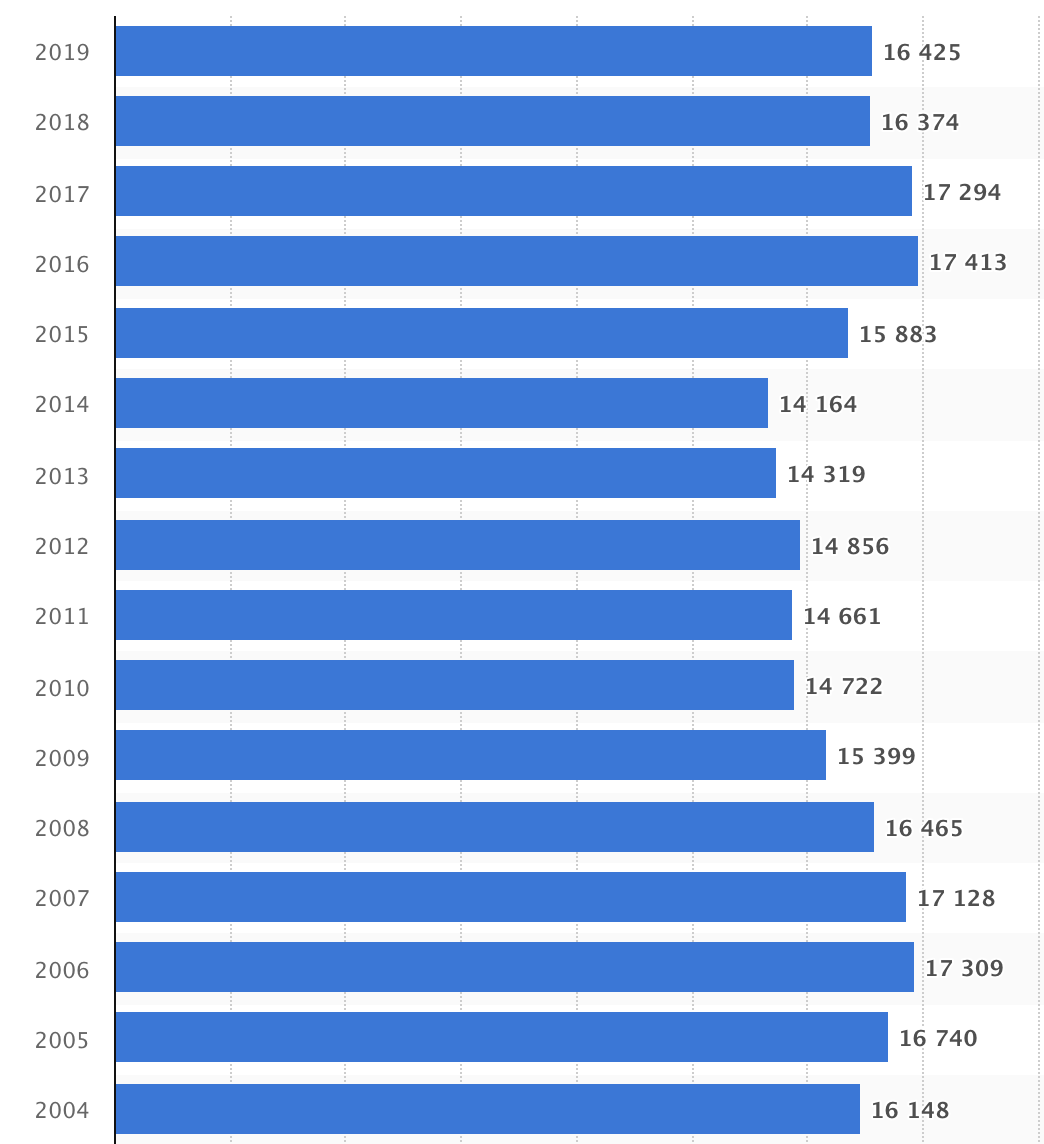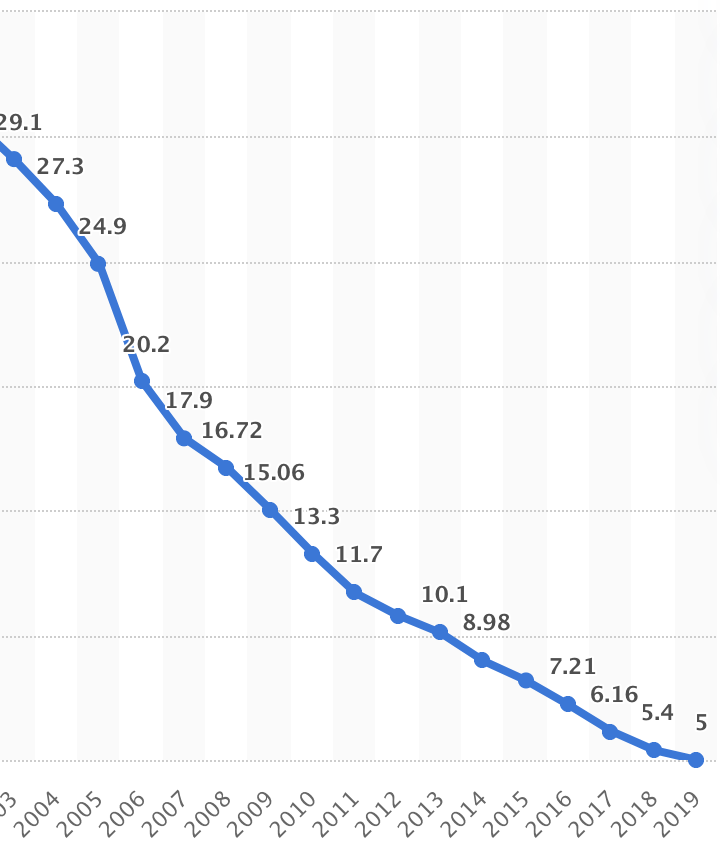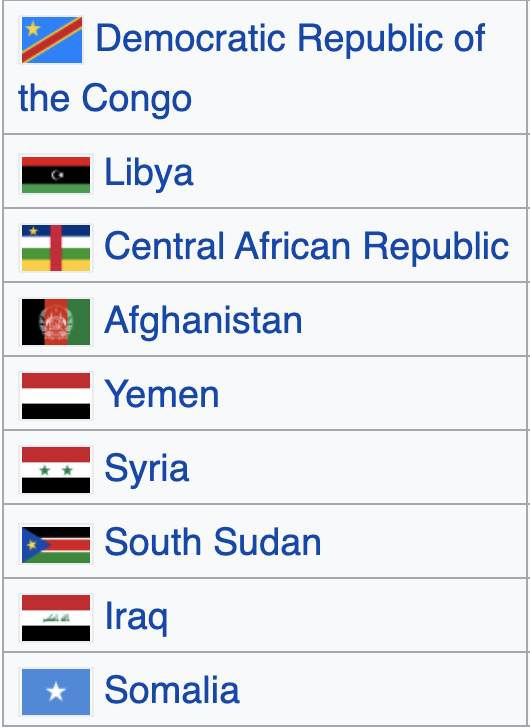Buried in the Atlantic's vague, catastrophizing "Facebook is a Doomsday Machine" article is a fair question: "How much real-world violence would never have happened if Facebook didn’t exist?" An article with this title should probably try to answer this./1 https://www.theatlantic.com/technology/archive/2020/12/facebook-doomsday-machine/617384/
The author claims it is "unanswerable." But if she really doesn't know the answer, then presumably a possible answer, would be "none or next to none," which would invalidate her thesis. In fact, she simply assumes that the answer is "a lot," but offers no evidence for this./2
If Facebook (or the social web generally) were a "doomsday machine," one would think that its devastating impact would be registered in an increase in the number of violent deaths (similar to how "excess deaths" can be used to track covid impact). Let's see if that is the case./3
Within the US, here are the raw numbers for murder and nonnegligent manslaughter from 2004, when Facebook was founded, through 2019. As you can see, this year's and last year's numbers are within margin of error territory from 2004's. (Source: https://rb.gy/48nwop )./4
The author is correct that it's a fool's errand to estimate what portion of the deaths in 2019 are attributable to social media; but she's the one writing the article called "Facebook is a Doomsday Machine," so presumably she should have some idea about what these numbers mean./5
We could go abroad, of course. Russia is the only country in the G8 listed among the ten most violent by the global peace index ( https://en.wikipedia.org/wiki/Global_Peace_Index). Here's the homicide rate there since the magical year of Facebook's birth./6
So where exactly are we supposed to look for all the violence that Facebook and social media have supposedly brought into the world? Look at the other 9 most violent countries in the GPI's top ten. Attributing the slaughter there to social media just seems like an obscene joke./7
So what is this article and others like it trying to claim? Basically: 1) a handful of dramatic although statistically rare acts of violence are attributable to social media "radicalization"; 2) social media is fomenting movements like QAnon that might be violent in the future./8
Re: 1, because of the rarity of the relevant events, a plausible causal model is impossible to construct, so the argument tends to be entirely anecdotal, often based on few or one example, which is pretty flimsy given the ambition of the argument and severity of prescriptions./9
Also re: 1, the basic form of these events ("terrorism" and "mass shootings") took shape long before social media; it's worth noting the recent focus on social media tends to obscure, for one thing, the way they are oriented towards the rhythms of *mass media* news cycles./10
Re: QAnon. There's another panic about child abuse within living memory that did far more harm than QAnon is ever likely to: the Satanic Panic. That's because it was pushed by the mainstream media, the demise of whose gatekeeping powers we're supposed to be worried about now./FIN

 Read on Twitter
Read on Twitter




